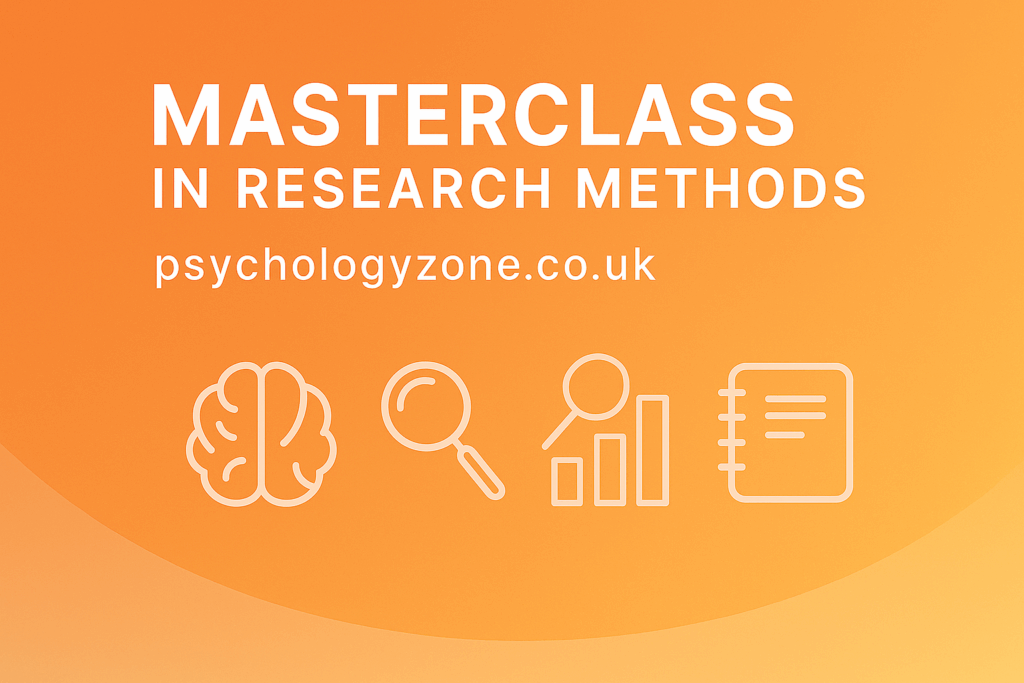Nick Savva, author, examiner and a very experienced and qualified psychology teacher and tutor with 30 years of teaching
This masterclass focuses on Research Methods exam questions, using practice papers and a Layered Learning recap approach. Research Methods is around 30% of the A-Level and appears in every exam, so being strong in this area is essential for achieving B/A/A* grades.
Most marks in Research Methods come from the detail (elaboration) in your answers. Many students know the correct points, but do not explain them fully, which leads to lost marks.
1. Aims, Hypotheses & Variables
- Difference between aims vs. hypotheses
- Directional, non-directional hypotheses, alternative hypothesis, null hypothesis.
- Difference between a correlational and experimental hypothesis
- IV / DV / operationalisation
- Extraneous & confounding variable
2. Experimental Methods & Designs
- Lab, field, natural, quasi experiments
- Repeated measures, independent groups, matched pairs
- Strengths & weaknesses
3. Control, Standardisation & Investigator Effects
- Randomisation & standardisation
- Random allocation
- Counterbalancing
- Demand characteristics & investigator effects
4. Observations & Self-Report Techniques
- Naturalistic vs controlled observations
- Overt vs Covert; participant vs non-participant
- Behavioural categories, time/event sampling
- Questionnaires (open/closed questions)
- Structured vs unstructured interviews
5. Correlations, Case Studies & Sampling
- Case studies
- correlations vs experiments
- Correlation coefficients
- Population vs sample
- Sampling methods: random, stratified, volunteer, systematic, opportunity
6. Ethics & Pilot Studies
- Ethical issues & BPS ethical code
- Ways to manage issues (debrief, consent, confidentiality, right to withdraw)
- Role and purpose of pilot studies
7. Reliability, Validity & Features of Science
- Reliability: assessing and improving reliability
- Validity: assessing and improving reliability
- How psychology meets (or fails) criteria of science
- Replicability, falsification, paradigms
8. Writing Up Research & Peer Review
- Structure: Abstract → Introduction → Method → Results → Discussion → Referencing
- Purpose of peer review, bias issues
9. Data Types, Descriptive Statistics & Data Display
- Mean, Median, Mode, Range, Standard Deviation
- Bar charts, Scattergrams, Tables
- Distributions: Normal vs Skewed
- Levels of Measurement: Nominal, Ordinal, Interval
10. Inferential Statistics & Choosing Statistical Tests
- Sign Test introduction
- Probability & Significance
- Type I & Type II errors
- Choosing statistical tests
11. Design a study (12 marker question)
- Aim
- Hypothesis (directional or non-directional)
- Variables + Operationalisation
- Procedure (step-by-step — MUST be replicable)
- Sampling method and why
- Ethical considerations and how to deal with them
- Data type and how to analyse it (e.g., descriptive stats or correlation)
